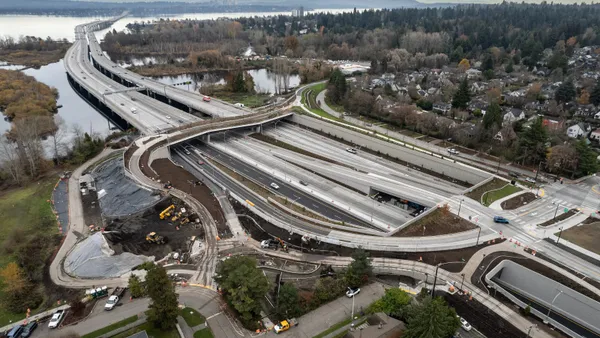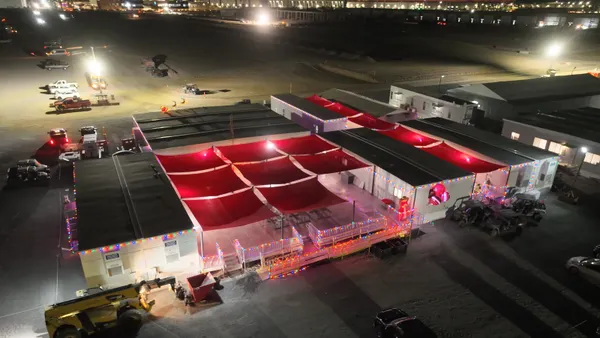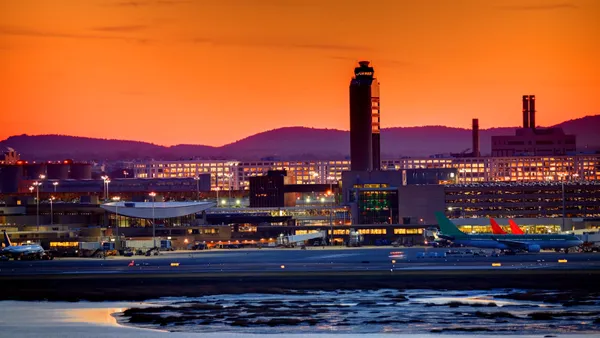Dive Brief:
- Tutor Perini has won a $100 million expansion contract for the Maryland Live! casino in Hanover, MD, the company announced in a press release.
- The contractor will build a 17-story, 310-room, high-end hotel, as well as an event center next to what is billed as Maryland's largest casino.
- Construction on the Cordish Companies-owned property has already begun, and Tutor Perini said it expects to complete construction in late 2017.
Dive Insight
Cordish is also behind the Texas Live! complex, a $200 million mixed-use development planned for the 7 acres next to the new Texas Rangers ballpark in Arlington, TX. While there will be no casino component to the project, it will include a 300-room hotel, a 35,000-square-foot convention center and 100,000 square feet of entertainment and retail space.
This contract marks the second major casino expansion project awarded to Tutor Perini recently. In February, the company announced it had won a $285 million contract for upscale additions to the Pechanga Resort and Casino in Temecula, CA. Tutor Perini will build a 568-room and suite hotel; a two-story, freestanding luxury spa and salon; a resort-quality pool complex with eight pool areas; two restaurants; and a 67,000 square feet of event space.
This year has seen an uptick in casino construction deals, with a $1 billion Wynn Resort casino complex planned for Massachusetts and a massive $4 billion Chinese-backed casino project approved for Las Vegas. The Wynn project is currently on hold while the parties work to resolve environmental roadblocks. Another $2 billion Atlantis-themed resort in Hawaii might include a casino element if it can win approval.
AECOM-owned Hunt Construction's gamble on a Calusa Casino expansion project north of Sacramento, CA, ended in a bust for the company this week when it shelled out $20 million to the Cachil Dehe Band of Wintun Indians to resolve claims of shoddy work. The contractor completed a hotel and two restaurants next to an existing casino back in 2005, but, in 2010, the tribe reported window leaks and, then, after an investigation, more substantial construction and code defects. An attorney for the tribe said Hunt refused to take responsibility and blamed subcontractors.













